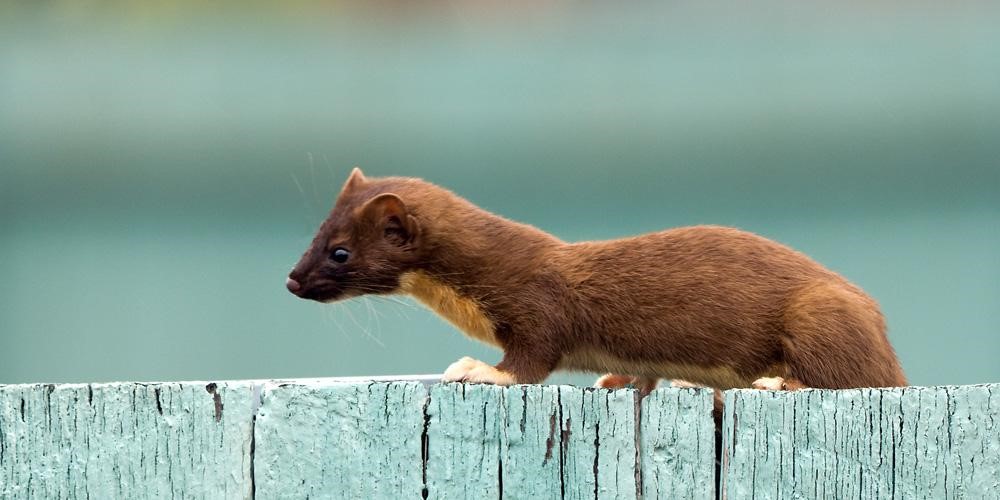
Weasels, Otters, and Their Cousins
Photo Credit: Dow Lambert
Mustelids are the largest family of carnivorous mammals, comprising about 50-60 species that include weasels, otters, badgers, ferrets, and wolverines, among many others.
While the size of the family could partly be due to it being a catch-all category for species once poorly understood, the increasing availability of genetic evidence may result in members being moved to their own separate families. (We have already seen this happen with skunks who were previously thought to be part of the mustelid family, and are now their own family, Mephitidae.)
There is no doubt that the family’s immense diversity is also mostly attributed to their status as mesopredators that occupy a range of habitats.
Habitats of mustelids span from mostly arboreal (American Pine Marten), to semi-aquatic (mink), to the fully aquatic (sea otter). Different species vary greatly in size, form, and behavior that is heavily dependent on the environment they live in.
Within a large scope of variation, mustelids also display smany similarities. They are typically small animals with elongated bodies, short legs, round ears, and thick fur. Most are solitary, nocturnal hunters who help to control prey populations.
Habitat destruction and overeager fur-trapping practices of the past have led to a decline, even disappearance for some species, in the state of Washington.
Biologists across the state have been working to assist the recovery of certain mustelid species, namely fishers, through re-introduction to previously occupied areas. Olympic National Park was determined as one fo the optimal restoration sites and over three years from 2008-2010, ninety fishers have been re-introduced and have since dispersed themselves through the peninsula. The project was a chance to return a predator, and take a step toward reversing a century of mismanagement.
Want to learn more about the mustelids of the Olympic Peninsula? Join us for our next virtual learning program tomorrow Wed., Dec. 9 @ 4pm.
Ken Wiersema will take a deep dive into the lives of these stealthy, carnivorous, playful, solitary hunters of our forests, coasts, and backyards.
Register for this free program and you’ll receive a zoom link to access the talk. Click here to register!

